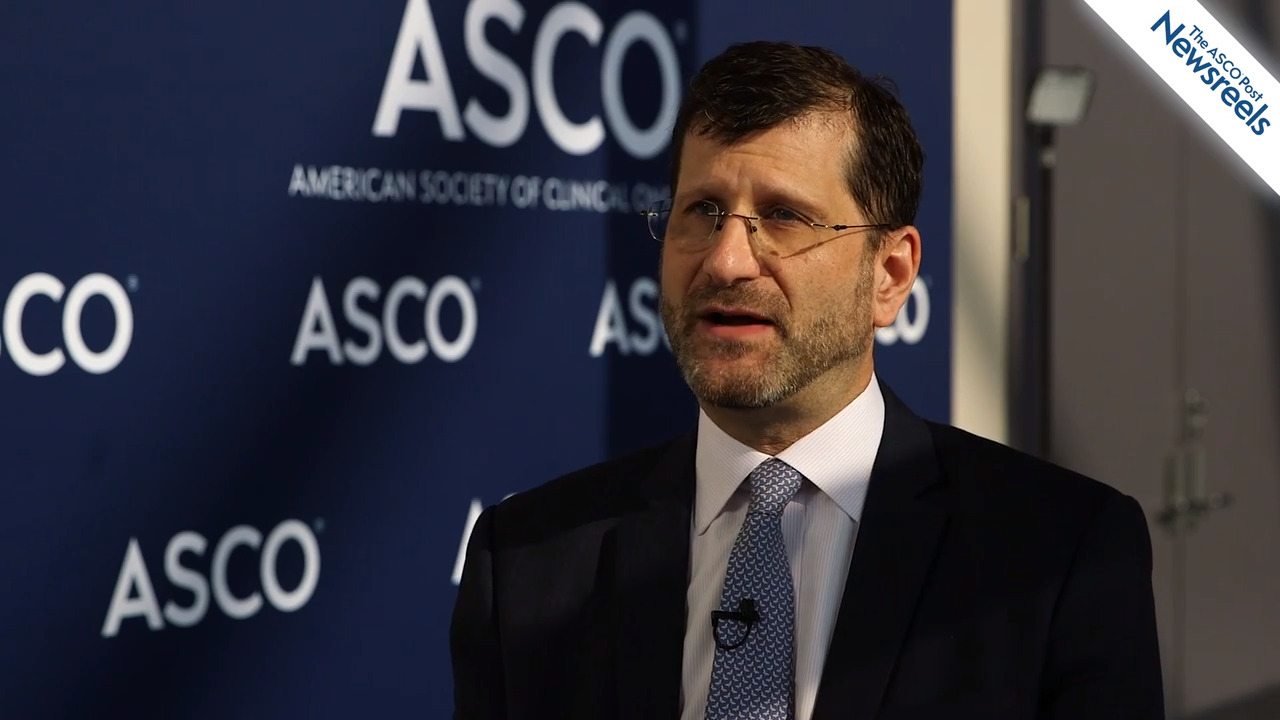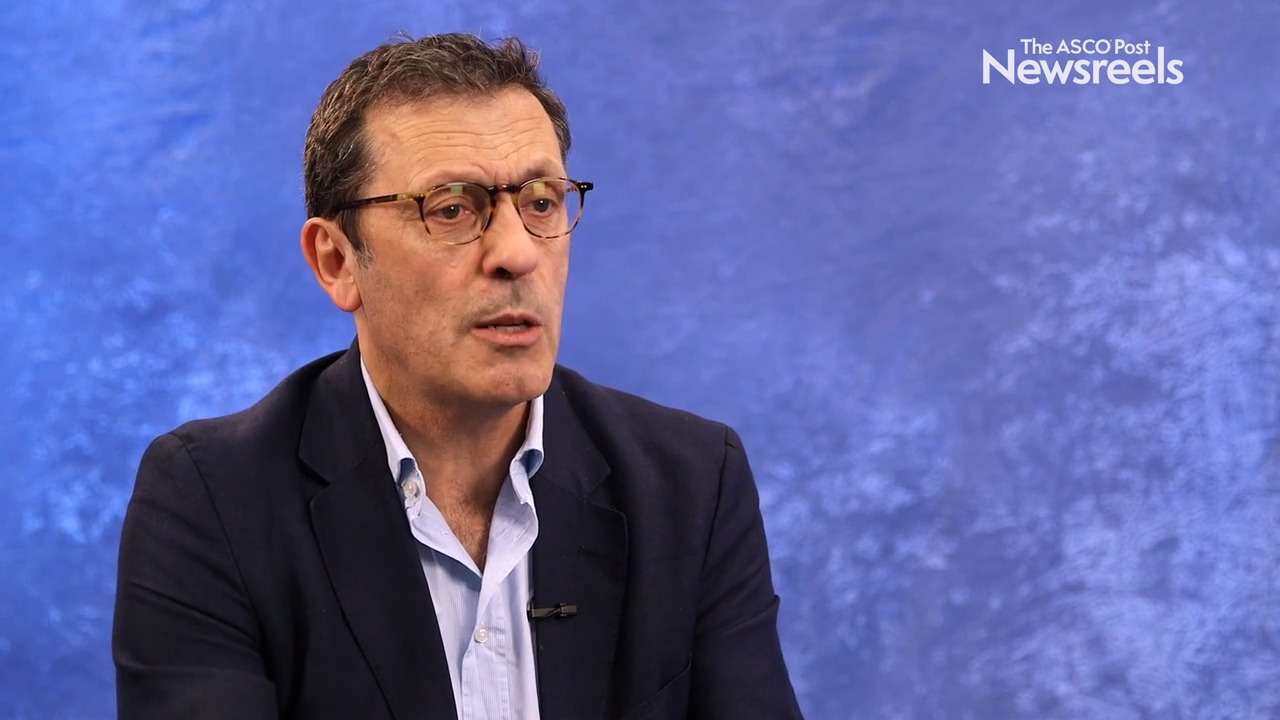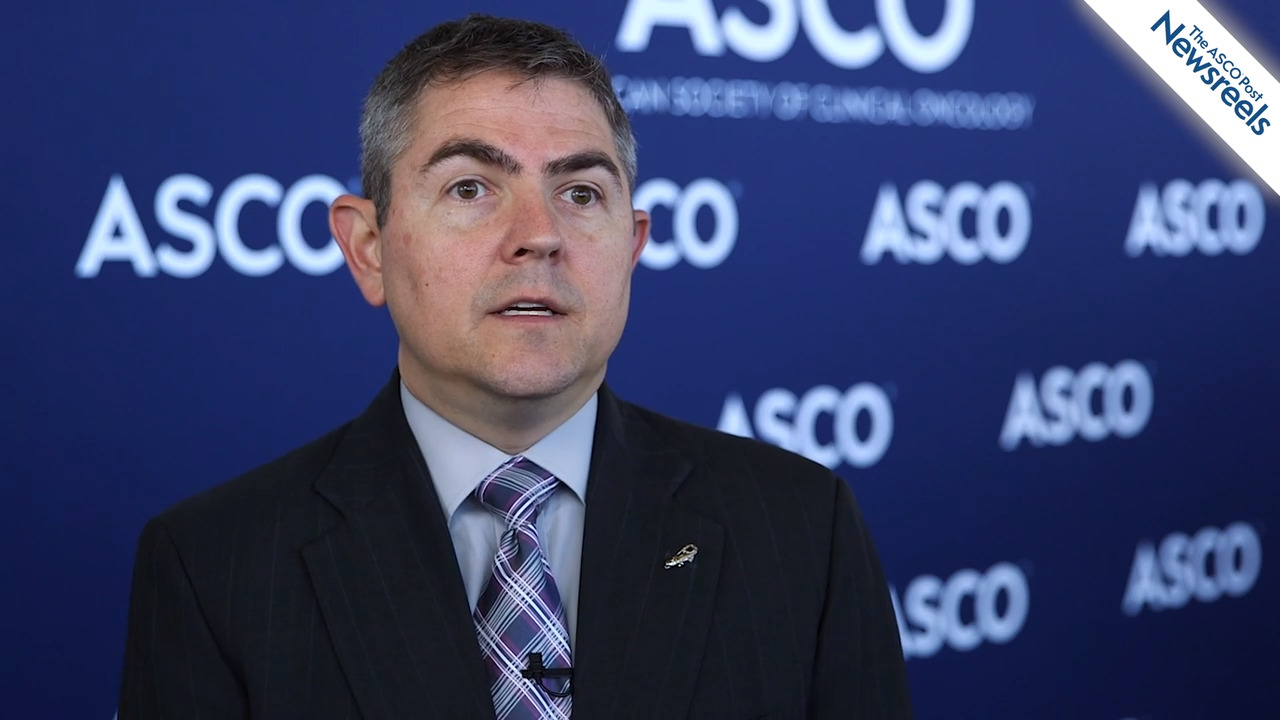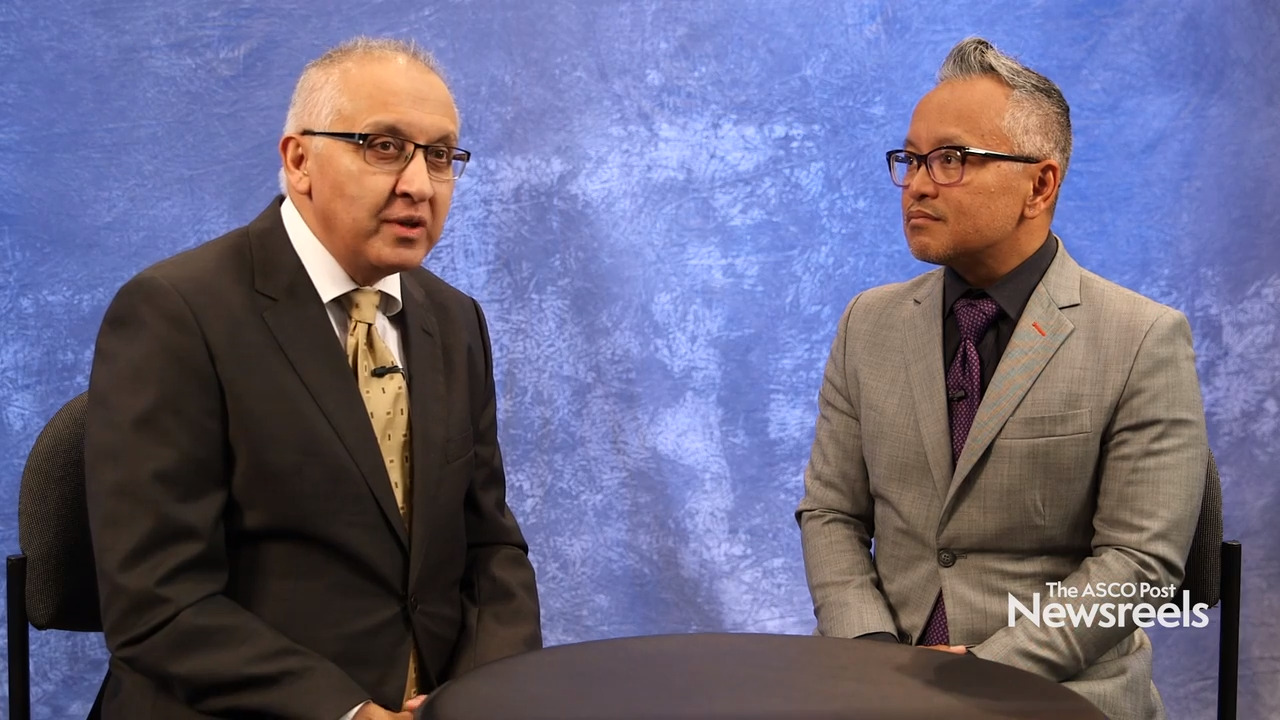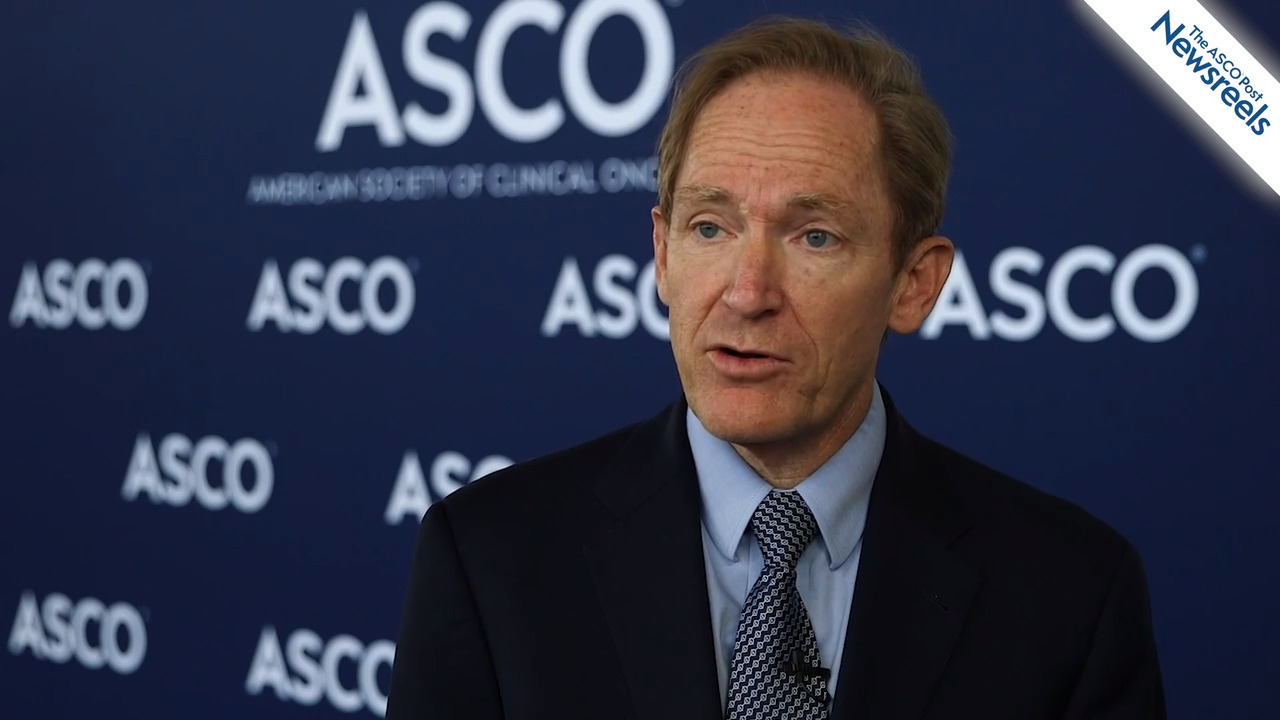Sarah Abou Alaiwi, MD, and Toni K. Choueiri, MD, on Checkpoint Inhibitors: Overall Survival and Polybromo-Associated Mutations
2019 ASCO Annual Meeting
Toni K. Choueiri, MD, and Sarah Abou Alaiwi, MD, both of Dana-Farber Cancer Institute, discuss the association of polybromo-associated BAF-type mutations with overall survival in patients with different solid tumors treated with checkpoint inhibitors (Abstract 103).
Michael J. Morris, MD, of Memorial Sloan Kettering Cancer Center, discusses the phase III findings from the Alliance A031201 trial, which showed that adding abiraterone acetate to enzalutamide did not improve survival in men with metastatic castration-resistant prostate cancer (Abstract 5008).
Luis G. Paz-Ares, MD, PhD, of Hospital Universitario 12 de Octubre, discusses study findings on the second-line use of lurbinectedin in patients with both resistant and sensitive small cell lung cancer (Abstract 8506).
Thomas J. George, MD, of NRG Oncology and The University of Florida Health Cancer Center, discusses the initial phase II results from a clinical trial using total neoadjuvant therapy (including veliparib and chemoradiation treatment) for locally advanced rectal cancer (Abstract 3505).
Don S. Dizon, MD, of the Lifespan Cancer Institute, and Mansoor Raza Mirza, MD, of Copenhagen University Hospital, discuss study findings that showed, compared with niraparib alone, niraparib plus bevacizumab improved progression-free survival in women with recurrent platinum-sensitive ovarian cancer (Abstract 5505).
Mark J. Levis, MD, PhD, of The Sidney Kimmel Comprehensive Cancer Center at Johns Hopkins University, discusses the effect of gilteritinib on survival in patients with FLT3-mutated relapsed/refractory AML who have common co-mutations or a high FLT3-ITD allelic ratio, and the importance of FLT3-ITD testing at diagnosis and again at relapse (Abstract 7000).
